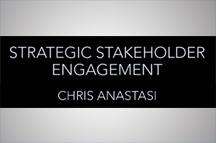From Washington to Brussels, Canberra to London, the headlines make stark reading: Corporate Lobbying in the Washington Swamp, A revolving door for Brussels lobbyists damages trust in the EU, Huawei lobbying in the Land Down Under, Big Business spends £25 million lobbying [UK] politicians. The media continues to report the lobbying activities of individuals, think tanks, public affairs specialists, and business. Lobbying is an important part of the policy making process, yet the perception is that the practice is not ethical when practiced by some groups.
The media is right to highlight corrupt practice, but it is wrong to suggest that lobbying by business is not a legitimate activity and somehow subverts the democratic process.
The practice of trying to influence decision-makers has developed significantly over the last 20 years. Today, society appears to be more accepting of the practice for some organisations and not others. Non-Governmental Organisations (NGOs) and other pressure groups that represent civil society interests can lobby decision-makers without being seen to be unethical. Unions likewise can lobby politicians without being frowned upon; business is viewed differently.

But if NGOs and unions represent parts of civil society then so does business: employees, shareholders, investors including pension funds, and local communities where business has its operations and offices. Surely a responsible organisation must protect its interests, and its stakeholders, by ensuring that government policy does not undermine its activities in the market. It needs to have a voice at the table of decision-making.
And what of the role of politicians and their civil servants? They have a responsibility to seek the best information available to them from whatever source including business if they are to make sound policy decisions. It is incumbent on them to be fair and equitable in their treatment of all stakeholders and their views. Former UK Deputy Prime Minister Nick Clegg in his book Politics Between the Extremeshighlights the problem:
“Where people try to exert influence or power without being open about it (corporate lobbying is an obvious example), there should be the maximum amount of transparency about who is trying to influence whom, and to what end”.
The question for business, then, is how to position itself in this arena. There are formal processes of engaging with decision-makers such as Consultations and Inquiries; there are also informal processes of engagement, from bilateral and small-group discussions to hospitality events. All activities, formal or informal, are legitimate if their purpose is to inform the decision-making process, and all parties act ethically. For business this means they comply with laws and regulations, they practice a culture of integrity, and they respect the needs of others; they must also ensure that any third parties they work with share the same values.
Employees are the most important ambassadors for business and it is important they also behave ethically; for example, they must not defraud or deceive anyone or act dishonesty, nor engage in bribery and corruption, or offer ‘facilitation’ payments in any country in which they operate; they must ensure that any gifts and hospitality are reasonable, transparent, and open to scrutiny.
These are strong principles, and should be applied by business around the world in a consistent and concerted manner, however difficult it may be in some jurisdictions. Society has a right to seek ethical practice from all organisations; but organisations also have the right, and responsibility, to express their opinions directly to government when policy decisions have a direct impact on their business.
A good example of this is the lobbying efforts of the Independent Generators Group (IGG) in relation to the UK Government's Energy Company Obligation (ECO). The latter was a scheme requiring electricity companies to carry out, and pay for, energy efficiency measures for their domestic customers. An earlier energy efficiency scheme had made no distinction between utilities that had domestic customers and generators who provided electricity to the wholesale market but had no customers.
A small number of generators came together to lobby Government to be excluded from the ECO scheme. In addition to responding to the formal Consultations, the detailed case was made to the Secretary of State by IGG CEOs, and the underpinning evidence was presented to his advisors and officials. The IGG also shared these arguments with their networks of decision-makers and key influencers. In this way, the issue had a high profile and the inequities of the scheme were made plain.
The lobbying efforts of the IGG were successful and all independent generators were exempted from the ECO scheme, saving considerable time and resources that would be better spent elsewhere. A successful lobbying exercise was based on a strong ‘story’ supported by credible evidence, a proactive approach, and a concerted stakeholder engagement programme; it also required Government to be open to discussion on what was an important issue for this part of the electricity sector.
Crucially, the lobbying activities of the IGG were ethical, transparent, and open to scrutiny. The companies had an obligation to defend their interests and were exercising their legal right to raise their concerns with government policy.
Chris Anastasi, Author, Strategic Stakeholder Engagement
‘’Strategic Stakeholder Engagement’’ published by Routledge is available at Routledge, Waterstones and Amazon.
Leading public affairs professional Chris Anastasi has spent the last 20 years engaging with decision-makers in government and other key influencers. Having amassed a considerable wealth of knowledge and experience and having delivered strategic approaches that worked, he has compiled this knowledge into an important guide for public affairs professionals of all levels.














